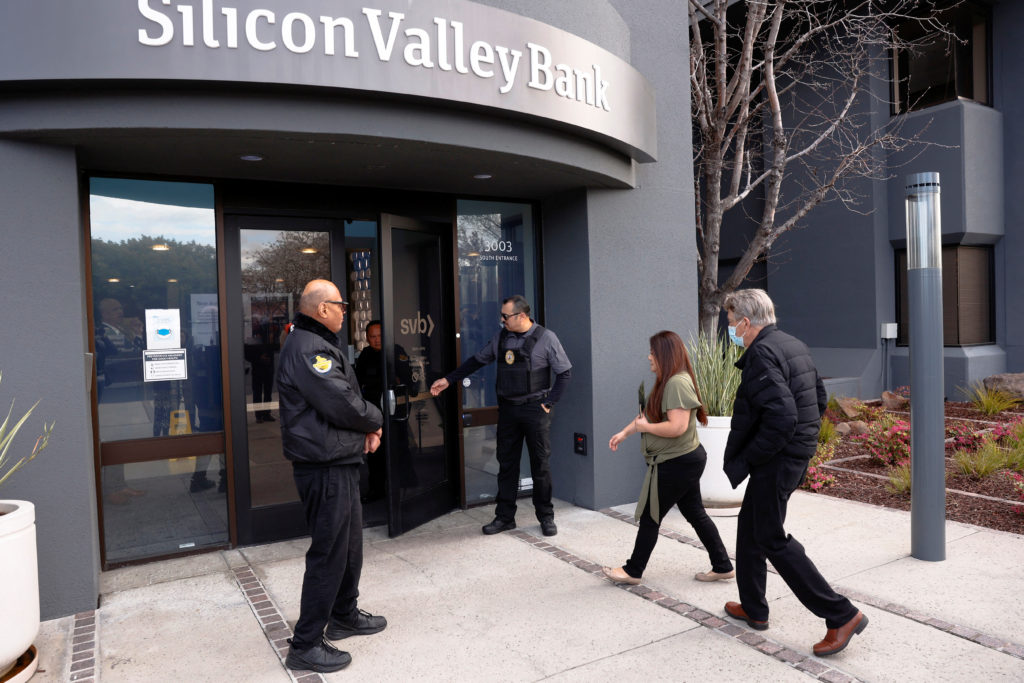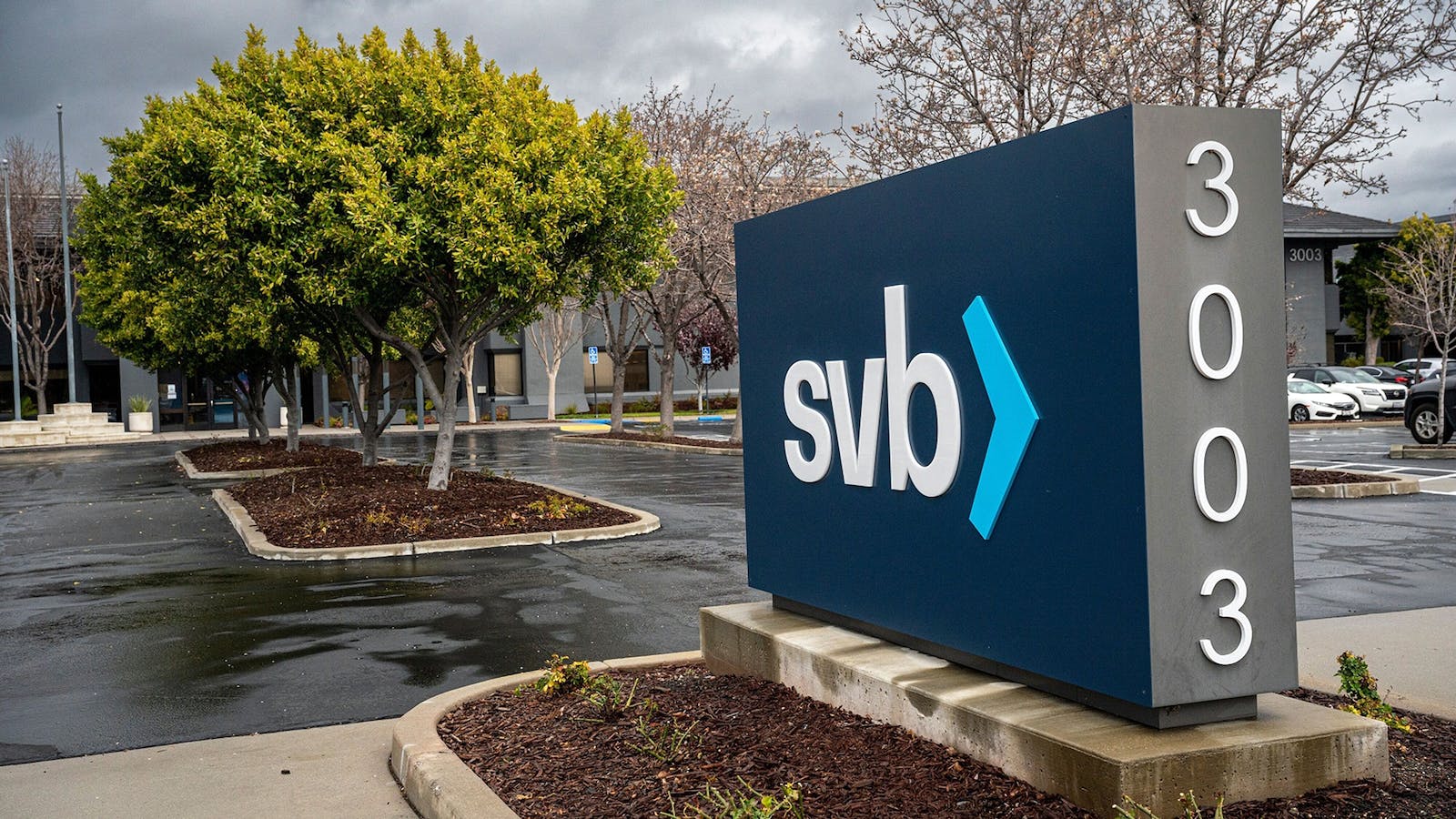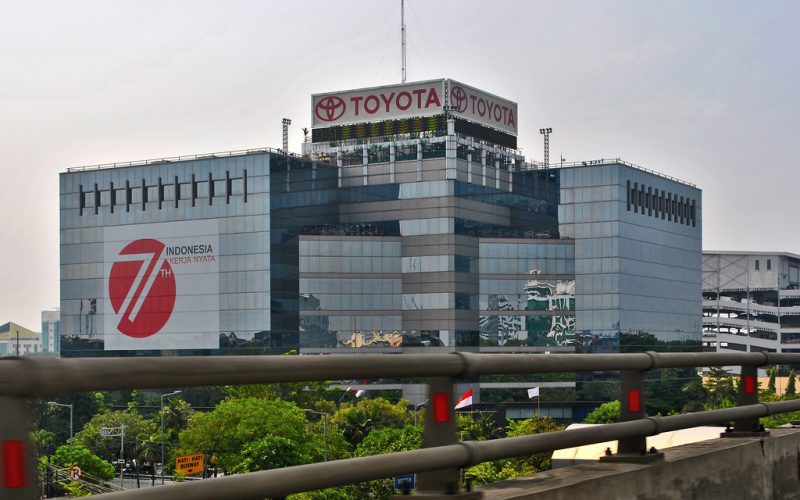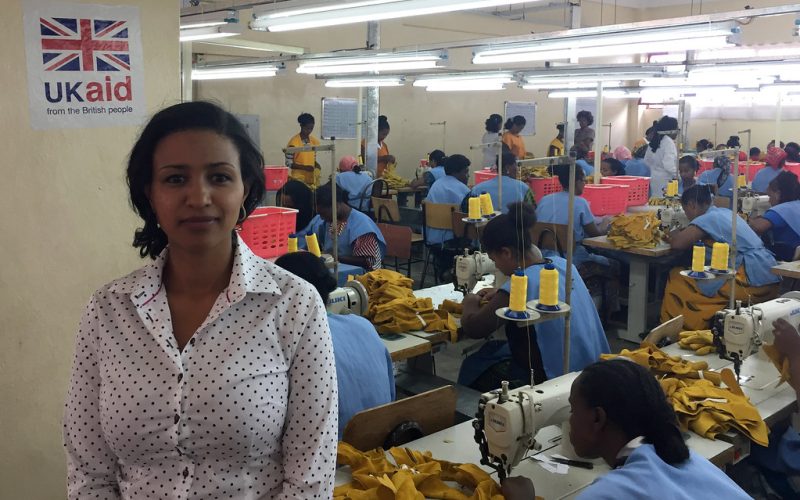Despite the US president’s reassurances that America’s financial system is safe following the failure of two American institutions, bank shares in Asia and Europe have fallen.
The declines result from measures taken to safeguard depositors’ funds following the failure of Silicon Valley Bank (SVB) and Signature Bank in the United States.

President Joe Biden has pledged to take “whatever action necessary” to safeguard the financial sector.
Investors are concerned that further financial institutions may be impacted by the aftermath.
Sharp declines were seen in stock markets around the world on Tuesday, with Japan’s Topix Banks index plunging by almost 7% and on track for its worst day in over three years.
During midday Asian trade on Friday, shares of Mitsubishi UFJ Financial Group, the largest bank in the country based on assets, dropped 8.1%.
The stock prices of Santander, a Spanish bank, and Commerzbank, a German bank, both dropped by more than 10% on Monday.
Although telling their customers they had the liquidity to weather any storms that could come their way, a series of smaller US banks sustained losses that much exceeded those of their European counterparts.
As a result of the uncertainty, some are speculating that the Federal Reserve of the United States would delay further planned interest rate hikes to curb inflation.
Mr. Biden announced that beginning on Monday, all money deposited with Silicon Valley Bank by individuals and businesses would be fully insured by the government.
Having their company accounts blocked meant that many clients had to worry about not being able to pay their employees or vendors.
James Clayton, a technology reporter for BBC North America, chatted with customers waiting in line all day outside the SVB office in Menlo Park, California.
Because the bank no longer supported wire transfers, customers were forced to withdraw their funds using cashier’s checks.
When and why did Silicon Valley Bank go under?
US officials confiscated Silicon Valley Bank’s assets on Friday and effectively put a stop to the business. The bank had specialized in providing loans to technology companies. Since the 2008 financial crisis, this was the largest US bank failure.
A loss from the sale of assets due to the increase in interest rates necessitated its fundraising efforts. Customers heard about the problems and rushed to withdraw their money, creating a cash shortage.
New York’s Signature Bank, which served a large cryptocurrency clientele and was widely considered the most at-risk financial institution in the country, was seized by authorities on the same day.
Mr. Biden assured the public that the expense of insuring the deposits would be borne entirely by the regulatory fees assessed to financial institutions.
US regulators have introduced a new mechanism for financial institutions to obtain short-term funding in times of crisis as part of their efforts to rebuild confidence.
Still, others are worried that the collapses, which followed the last-week demise of another American institution, Silvergate Bank, are indicative of wider problems in the business world.
The US government “moved forcefully to avoid a contagion emerging,” according to Paul Ashworth of Capital Economics.
It’s important to note that there’s no assurance this will work because “contagion has traditionally been more about irrational fear,” he said.
“The early rush of joy has been overtaken by niggling fears that the era of high rates would be more difficult for some banks to swallow than had been previously imagined,” said Danni Hewson, head of financial analysis at the stockbroker’s AJ Bell.
US bank shares fell despite President Joe Biden’s assurance that “everything is needed” would be done to stop the financial system from collapsing further.
Political repercussions
Debates about how much the government should do to regulate and protect banks have been reignited in the wake of SVB’s demise, mirroring the one that prevailed after the 2008 financial crisis.
US Federal Reserve Chair Jerome Powell has promised a full and open investigation into the collapse.
During his speech, Mr. Biden called for stricter regulations and made it clear that investors and bank CEOs would not be exempt.
“That’s how capitalism works,” he explained, referring to their calculated gamble.
But, Senator Tim Scott of the Republican Party, who is widely considered a possible presidential candidate in 2024, has deemed the rescue to be hazardous.
Future institutions will not be deterred from relying on the government to swoop in after taking excessive risks if the culture of government involvement is established, he argued.
Concern about financial institutions has resurfaced. Debate is heated once more on the topic of bailouts. The year is not 2008, though.
Banks that were deemed “too large to fail” were the primary target for reform in the wake of the global financial crisis. Medium and small banks are at the heart of the current crisis.
Both Silicon Valley Bank and Signature Bank, the two failed financial institutions, shared similar characteristics: their business models were overly focused on a single industry, and they had an excessive exposure to assets whose values were being negatively impacted by increases in the prime rate.
It is said that they should have anticipated this but failed to do so. Chair of the US Federal Reserve Jerome Powell has gone to great efforts to announce the Fed’s desire to hike interest rates.
It is presumed that the danger to the remainder of the financial sector is modest because most institutions are properly diversified and have plenty of cash on hand. That won’t stop authorities from investigating what went wrong and whether new regulations are necessary.
Additionally, the stress on regional financial institutions has not eased. It also remains to be seen what will happen with the American economy and the war on inflation.












